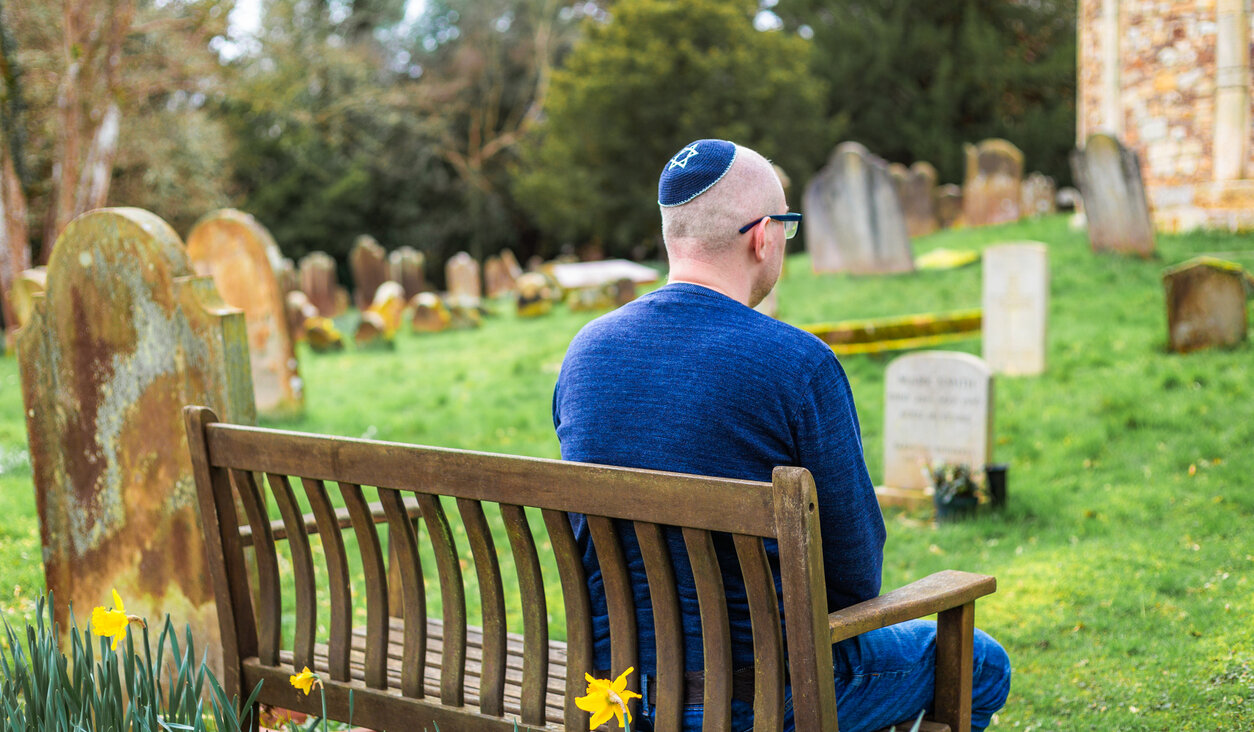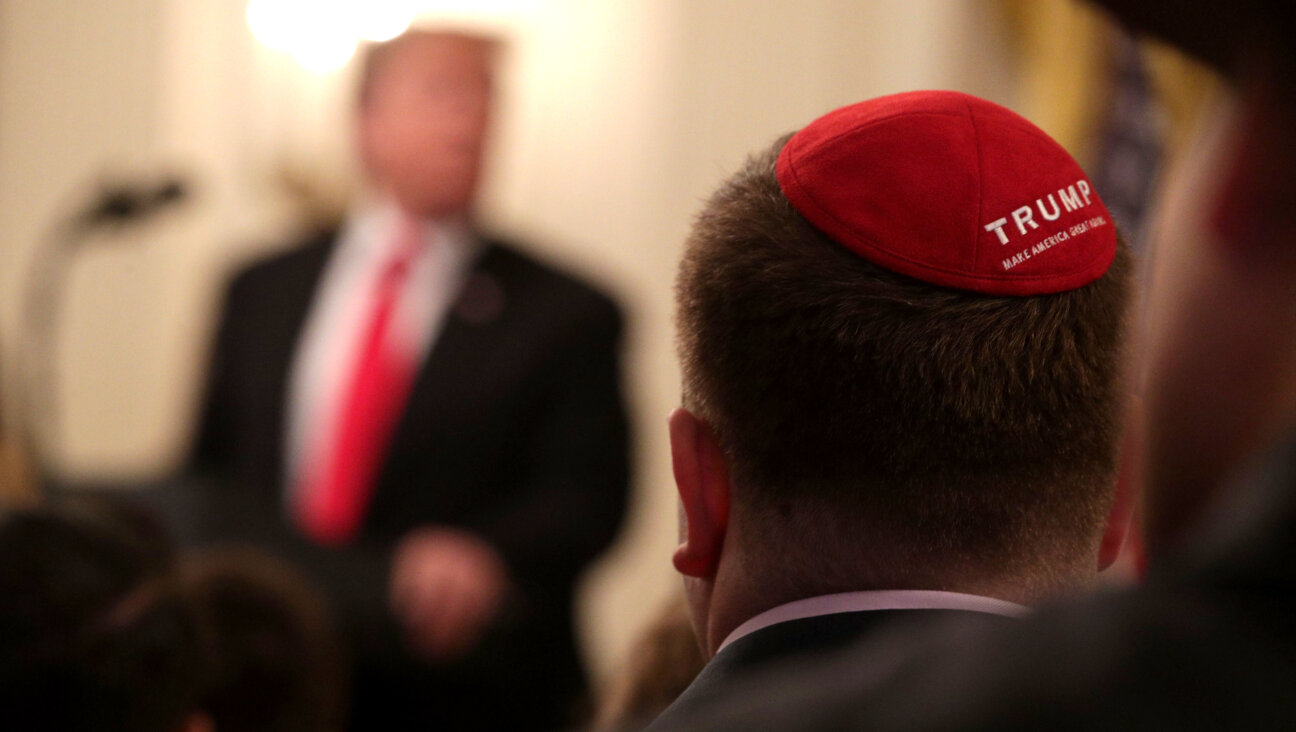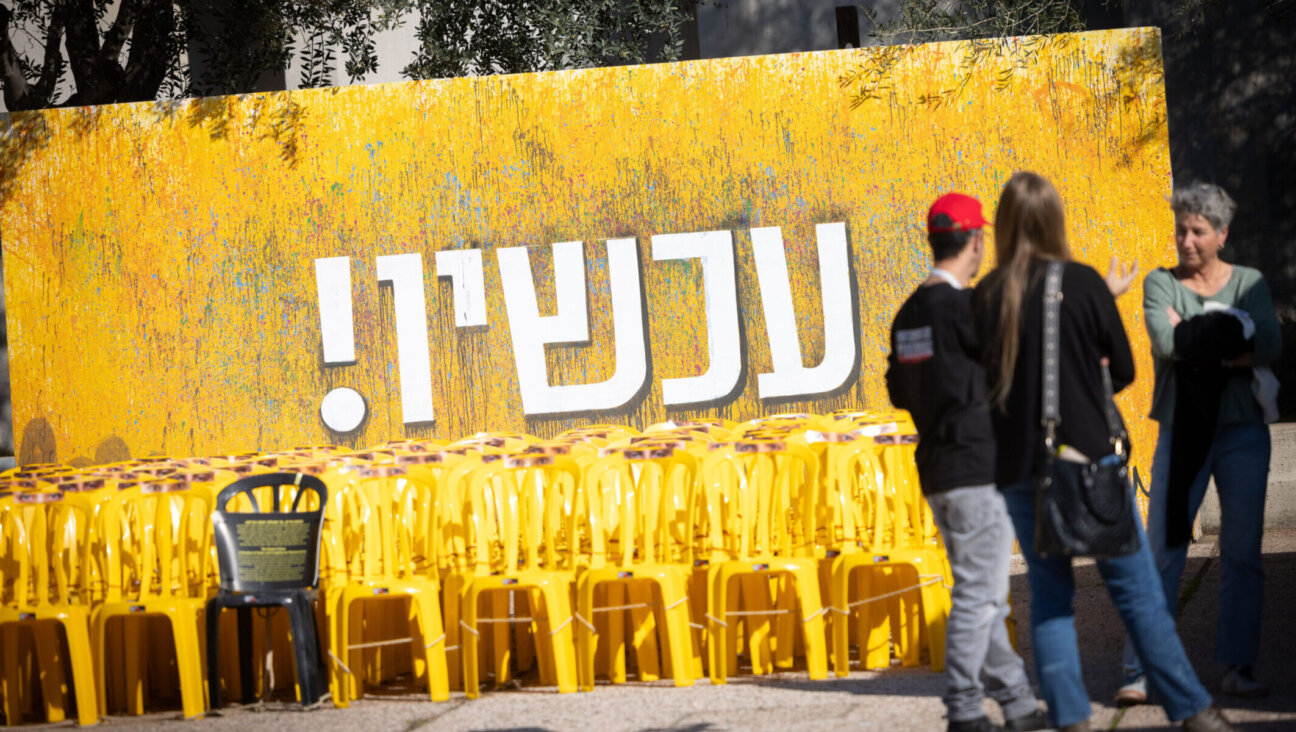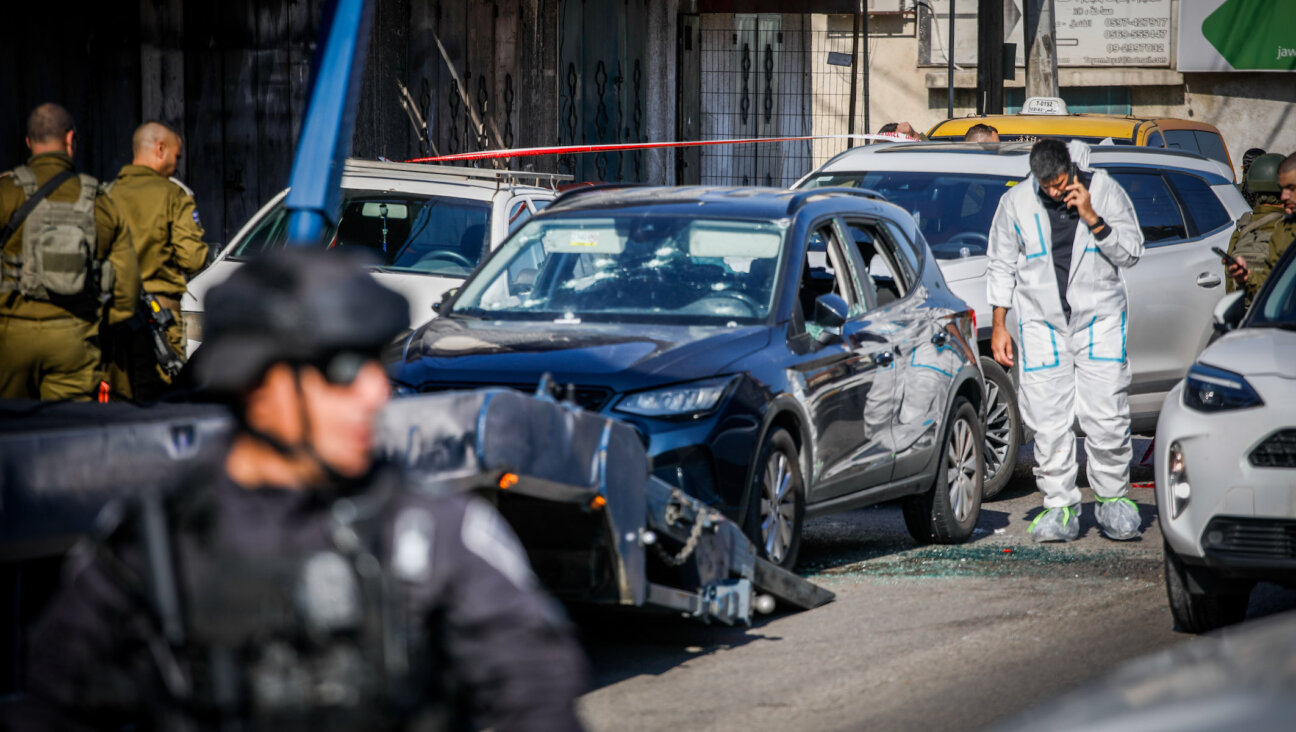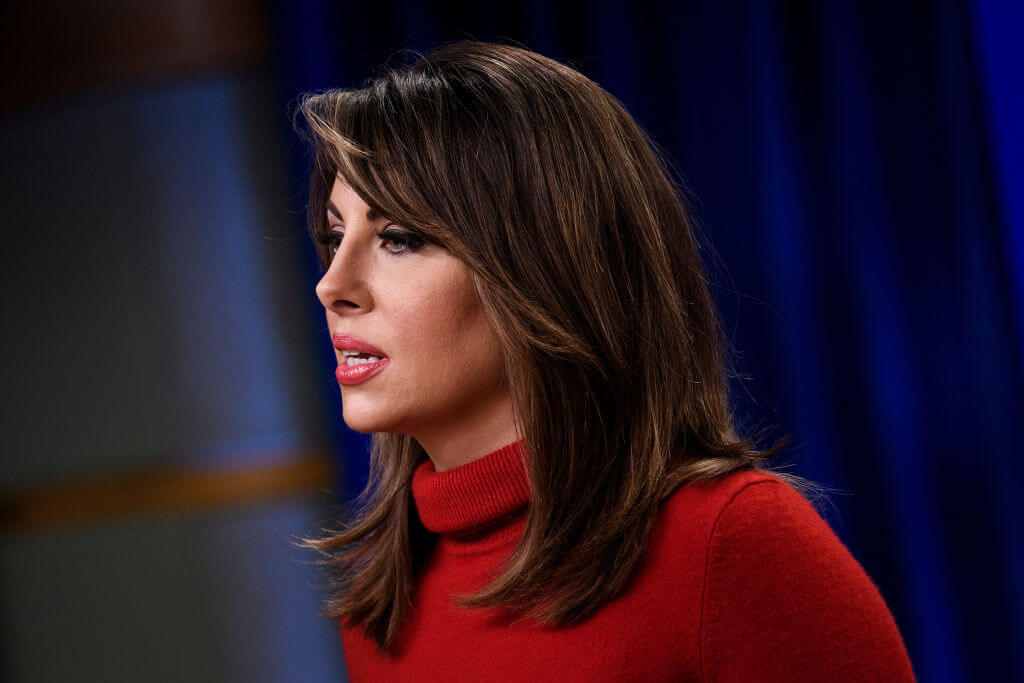Talking with Taika Waititi — before ‘Jojo Rabbit’

Taika Waititi in 2012. Image by Alberto E. Rodriguez/Getty Images
Editor’s note: Taika Waititi won the 2020 Oscar for Best Adapted Screenplay for “Jojo Rabbit.” But before he became a household name in the United States — he also directed the widely-beloved “Thor: Ragnarok” (2017) — he was the brightest light in filmmaking in his native New Zealand. To honor the Maori Jewish director’s groundbreaking Oscars victory, we’re reprinting his 2012 interview with the Forward about his film “Boy” (2010) on the occasion of its U.S. release.
It was the highest-grossing film ever in New Zealand, was nominated for the 2010 Sundance Film Festival Grand Jury prize and won the top prize at the Berlin Film Festival that same year. Now, New Zealand director Taika Waititi’s “Boy” is making its New York premiere at the Angelika Film Center. Based on Waititi’s 2003 Academy Award-nominated short film “Two Cars, One Night,” “Boy” is a dramatic comedy set in 1984 in a community of New Zealand’s indigenous Maori people. The film follows the highly imaginative, Michael Jackson-obsessed titular “Boy” as he is reunited with his recently paroled father, played by Waititi.
Waititi, who is of mixed Maori and Russian-Jewish descent, filmed the movie on location in his hometown of Waihau Bay, New Zealand. This is his second movie, following his 2007 romantic comedy “Eagle vs. Shark,” which stars his friend and fellow New Zealander Jermaine Clement, best known for “Flight of The Conchords.” The Forward talked to the Kiwi director about growing up in New Zealand, his childhood idol Michael Jackson and serving double duty as star and director of his own movie.
Laurie Kamens: What was it like filming where you grew up, in Waihau Bay?
Taika Waititi: It was great. It was cool to involve my family as well; a few of them were involved in the production. The community is very small so it felt like a communal effort to get this thing done. It’s a really amazing place to grow up because there’s nothing there. It’s a small little fishing town in the middle of nowhere in New Zealand. There’s only one store, and the nearest policeman is like 45 minutes away.
How autobiographical is the film?
It’s very partly autobiographical. It’s set in the town I grew up in, but the story itself is made up. When I was writing the film I decided to do it in [Waihau Bay] and have names of characters from people I knew, but they weren’t based on actual people, it was just I love the names that I grew up around.
[Boy’s home life was] based on how I grew up, [living] with my grandmother with a lot of kids all from different parents. That’s actually very common for a lot of kids in New Zealand, especially from Maori families. I think that’s changing a little bit now, but I feel like it was a very rich upbringing because we were very independent and looked after each other. We were very social [because] in an environment like that you’re always interacting with other kids.
Where did the inspiration for the script come from?
I just really like stories about family and about how a lot of families are very disconnected. Family is supposed to be the closest community you have and a lot of time we really don’t know those people. We really don’t know what goes on inside them, [their] hopes and dreams. I like exploring that disconnect between people in the family unit.
Though many of the characters in “Boy” are children, there seems to be a certain innocence to the adults as well. Is that trait something that you strive for in all of your characters?
Totally. It’s the idea that adults kind of look out for themselves, and then when you grow up, assuming you’ve grown up, a lot of times children end up parenting the parent and being more responsible just because they have the most to lose. I like flawed characters and I like seeing people who are supposed to be, not villains, but antagonists. There are elements to them which are really annoying, but you kind of see where they came from. You see the things that caused those inadequacies. It all comes from self-hate, so the idea that you’re not good enough, and desperate to be loved, desperate to be accepted, and you become a complete asshole. I find characters like that fascinating, because I find I know a lot of people like that.
Michael Jackson plays an important role in the plot of the film. Was he a big part of your childhood?
He was obviously hugely and amazingly popular around the world, but definitely in New Zealand as well. He was a massive hero to a lot of kids. For us anyway it was more of celebrating anyone who was of color, whatever color that may be, doing amazingly well and being the king of pop, and turning out music that made everyone listen.
What was it like both starring in and directing this film?
It was great. I actually wasn’t supposed to do the role but I ended up taking it just a couple of months before we started shooting because I wanted a certain style of performance and Maori actors aren’t usually conditioned to play a lot of comedy roles. The characters are so different from what you usually expect of Maori actors, that probably no one would have been able to fulfill it. Maybe I’d written the role secretly knowing I was gonna do it.
Taika Waititi: It was great. It was cool to involve my family as well; a few of them were involved in the production. The community is very small so it felt like a communal effort to get this thing done. It’s a really amazing place to grow up because there’s nothing there. It’s a small little fishing town in the middle of nowhere in New Zealand. There’s only one store, and the nearest policeman is like 45 minutes away.
How autobiographical is the film?
It’s very partly autobiographical. It’s set in the town I grew up in, but the story itself is made up. When I was writing the film I decided to do it in [Waihau Bay] and have names of characters from people I knew, but they weren’t based on actual people, it was just I love the names that I grew up around.
[Also Boy’s home life was] based on how I grew up, [living] with my grandmother with a lot of kids all from different parents. That’s actually very common for a lot of kids in New Zealand, especially from Maori families. I think that’s changing a little bit now, but I feel like it was a very rich upbringing because we were very independent and looked after each other. We were very social [because] in an environment like that you’re always interacting with other kids.
Where did the inspiration for the script come from?
I just really like stories about family and about how a lot of families are very disconnected. Family is supposed to be the closest community you have and a lot of time we really don’t know those people. We really don’t know what goes on inside them, [their] hopes and dreams. I like exploring that disconnect between people in the family unit.
Though many of the characters in “Boy” are children, there seems to be a certain innocence to the adults as well. Is that trait something that you strive for in all of your characters?
Totally. It’s the idea that adults kind of look out for themselves, and then when you grow up, assuming you’ve grown up, a lot of times children end up parenting the parent and being more responsible just because they have the most to lose. I like flawed characters and I like seeing people who are supposed to be, not villains, but antagonists. There are elements to them, which are really annoying, but you kind of see where they came from. You see the things that caused those inadequacies. It all comes from self-hate, so the idea that you’re not good enough, and desperate to be loved, desperate to be accepted, and you become a complete asshole. I find characters like that fascinating, because I find I know a lot of people like that.
Michael Jackson plays an important role in the plot of the film. Was he a big part of your childhood?
He was obviously hugely and amazingly popular around the world, but definitely in New Zealand as well. He was a massive hero to a lot of kids. For us anyway it was more of celebrating anyone who was of color, whatever color that may be, doing amazingly well and being the king of pop, and turning out music that made everyone listen.
What was it like both starring in and directing this film?
It was great. I actually wasn’t supposed to do the role but I ended up taking it just a couple of months before we started shooting because I wanted a certain style of performance and Maori actors aren’t usually conditioned to play a lot of comedy roles. The characters are so different from what you usually expect of Maori actors, that probably no one would have been able to fulfill it. Maybe I’d written the role secretly knowing I was gonna do it.
Watch the trailer for ‘Boy’:
A message from our Publisher & CEO Rachel Fishman Feddersen

I hope you appreciated this article. Before you go, I’d like to ask you to please support the Forward’s award-winning, nonprofit journalism so that we can be prepared for whatever news 2025 brings.
At a time when other newsrooms are closing or cutting back, the Forward has removed its paywall and invested additional resources to report on the ground from Israel and around the U.S. on the impact of the war, rising antisemitism and polarized discourse.
Readers like you make it all possible. Support our work by becoming a Forward Member and connect with our journalism and your community.
— Rachel Fishman Feddersen, Publisher and CEO







